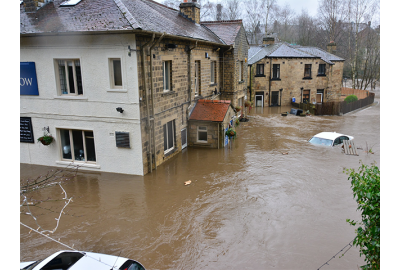Home Excess Insurance Cover: What Is It? Do You Need It?

Statistics published by the Association of British Insurers (ABI), reveal that 79% of claims on home insurance policies are successful. That means that one in five is rejected.
Claims that are successful impose an obligatory excess payment. Excess is deducted from the total amount of the insurance payout. As a consequence of home insurance policies, homeowners are often out of pocket.
Having to pay excess may seem unfair, however, there is a valid reason. It deters people from making fraudulent or trivial claims.
In this article, we will discuss what home excess insurance cover is, the benefits it offers and whether you need it.
We’ll also discuss what home insurance policies do not generally cover and how home excess protection policies can help to fill the void.
What Is Home Excess Insurance?
When you take out a home insurance product, the policy will include an “excess” clause. The excess payment on your home insurance policy is the obligatory amount you contribute towards a claim before your insurer covers the remaining cost.
Insurers typically deduct the excess from the total payout. For example, if your excess is £250 and you submit a claim that is worth £1250, the insurance company will deposit £1000 in your bank account.
That’s straightforward enough. However, if your insurance policy carries a high excess rate, you may want to consider taking out annual home excess insurance cover.
Home excess protection policies essentially cover your excess costs. Therefore, if your excess is steep - and they can be as high a £5000 - annual home excess insurance means you are not left out of pocket.
In recent years, the risk of floods across the UK has seen a rise in flood insurance. Home insurance excess has also increased. These types of policies also include claims for burst water pipes.
Annual home excess insurance cover is not obligatory, this is an add-on. The purpose of excess protection policies is to ensure you receive a full refund for damage to your property or loss of its contents.
Home excess insurance policies are ideal for homeowners that have included flood damage and subsidence to their home insurance policy. This type of cover is typically far more expensive because the payouts are likely to be much higher than standard insurance cover.
What Does Home Excess Insurance Provide Me?
The benefit of annual home excess insurance is that you have peace of mind knowing that you will be financially protected no matter what happens to your home (other than a few exceptions which are detailed below).
Home insurance policies typically cover fire, flood and theft. However, bad fortune always comes out of the blue, circumstances cannot be planned.
Unless you have a reasonable amount of capital to cover the excess, you have to carry their financial burden out of your monthly budgets. If you are left with a bill of several thousand pounds, your quality of life will be disrupted for months or even years.
For example, a water pipe in your basement may freeze over winter and burst, but how much will the excess on your flood insurance cost.
Or your roof might be wrecked in a storm and the damage is not covered by your traditional home insurance policy. Some home excess protection policies cover storm damage.
Before we give you some claim examples, let’s examine the two types of excess payment. It is important to know your options because they are central to the amount of payout you are likely to receive, the amount you are obligated to pay upfront and the amount you pay each month as a premium.
What Are The Types Of Home Excess Insurance Cover?
There are only two types of home excess insurance cover; compulsory and voluntary.
Compulsory Excess
Every home insurance policy will have a compulsory excess payment clause. This is the amount you’ll have to pay when you make a claim, the amount is set by your insurer and is non-negotiable - hence it’s compulsory.
It’s also important to note that insurance policies will only pay out on claims covered by the policy. e.g. claims for property and contents caused by accidental damage, not wear and tear.
Voluntary Excess
You also have the option to make voluntary excess contributions in addition to the compulsory excess. Although voluntary payments are not obligatory, they do reduce your monthly premiums which could end up working out less expensive.
What Are The Benefits Of Annual Home Excess Insurance Cover?
To give you a clear idea of how annual home excess insurance cover can benefit your finances, let’s give you an example.
Let’s say the ground floor of your home suffers a flood and the total damage is £32,000 - the average amount claimed on flood insurance.
If your home insurance policy does not cover you for a flood, you have no option other than to pay for the repairs yourself.
Flood insurance typically covers you for:
- Drying out your home.
- Restoring any fittings and fixtures, like lights and kitchens.
- Removing debris.
- Fees for services needed after a flood, including legal representation, or surveyor and architect fees.
The average cost of flood insurance is £132 a year if you haven’t been flooded before and £167 a year if you live within 400m from water.
Considering the numbers it’s clear to see that flood insurance is a good option.
However, the excess on flood insurance can be expensive. For example, let’s say the excess is £4000, that would mean you need to stump up £4000 on top of alternate accommodation costs - which are generally not covered by flood insurance.
In other words, a flood is going to be costly whether you have flood insurance or not.
If you also have home excess insurance, the £4000 deducted from your payout is recovered.
Do You Need To Pay Voluntary Excess Home Insurance?
There is no obligation to make voluntary contributions to your home excess insurance, but doing so can work in your favour.
Applicants that show a willingness to pay more in excess issue a statement of intent that they are not seeking to make a fraudulent, or unnecessary claim.
Insurers reward applicants that only intend to claim in serious circumstances with lower premiums. The more you are willing to pay in voluntary excess, the less your monthly premiums will be.
Voluntary excess payments are not the most influential factor in deciding the number of monthly payments you need to make. However, they do ensure you pay less each month.
The cost of a home excess protection policy depends on which insurer you choose, the value of the items you intend to insure and the amount of excess that you want to be covered for.
Bettersafe's home excess protection policies ensure you avoid having to pay excess deductions. We even include damage caused by subsidence. Taking a higher voluntary excess to lower the cost of your monthly premiums will, therefore, save you money.
What Is Covered With Annual Home Excess Insurance?
Annual home excess insurance typically covers clothing, furniture, jewellery and electrical goods. In general, these items are only covered for theft or if they are damaged by fire or water.
You can also upgrade the insurance policy to include accidental damage - which is ideal to protect valuable items. Pets and children are prone to causing accidental damage.
Some annual home excess insurance - like our Bettersafe excess protection policies - also cover you for subsidence and storm damage. These types of policies are harder to find.
How Much Home Excess Protection Do I Need?
We can’t really answer that question for you so feel free to contact us and speak with one of our advisors. We can certainly give you some advice.
A sensible approach to home excess protection policies is to determine how much excess you will have to pay against a claim. Then weigh this up with how much you can afford to pay in excess against additional protection.
It’s worth noting that excess insurance premiums are pretty low. For example, you might only have to pay £10 a month to claim £700 depending on whether you are paying for voluntary excess.
That means you only pay £120 a year for excess insurance but in doing so you will rescue £700. So annual home excess insurance covers you for almost six years before you lose out.
What Does Home Excess Insurance Not Cover?
As with all insurance policies, there are things that won’t be covered by property and contents insurance. This list below does not apply to every home insurance policy but are common exclusions. These could include:
- General wear and tear.
- The structure of your home including walls, floor and roof (this is covered by buildings insurance).
- Subsidence, heave or landslide.
- Fixtures and fittings.
- Damage to fences, gates and hedges caused by a storm, or by falling trees or branches.
- Computers repairs that have been infected by a virus.
- Damage caused by malicious people or vandals if your home has been left unoccupied for a period of time stipulated in the policy.
- Acts of theft, attempted theft, malicious damage or vandalism by family members, paying guests or tenants.
Most policies also have limits on the value of possessions. This is the case whether you are insuring a single item such as a painting or valuable item of jewellery, or the total sum of all your household assets.
Flood Damage. Am I Protected With Bettersafe Home Excess Insurance?
Some homeowners live in areas that are excluded from insurance protection for flood damage. Insurers are notoriously reluctant to insure homes that are situated in high flood-risk areas.
Even if you can find a home insurance policy that covers you for flood damage, the premiums and excess are higher than general home insurance policies. The amount you may have to pay as excess can be quite substantial.
The annual home excess insurance cover we offer at Bettersafe includes flood damage and subsidence. This gives you peace of mind without having to pay exuberant insurance premiums.
Will Making A Claim On My Home Insurance Increase My Premium?
Companies structure home insurance policies in a way that encourages homeowners to make a claim only when it is necessary. Therefore, making a claim will mean your monthly premiums will go up moving forward.
Claims that would amount to somewhere around the agreed excess in your policy are not worth pursuing. You will probably pay more in premiums when you renew your policy over the next couple of years.
On the flip side, insurance companies offer no claims discounts which are built up over a number of years, sometimes, it’s better to absorb the cost now so that you can save later.
Before making a claim, weigh up the value of your claim against the increase in premiums. This is the case whether you have a home excess protection policy or not.
That’s not to say that you shouldn’t make a claim if there is a financial incentive to do so, if the premium does go up on your annual home excess insurance cover, you still have the licence to shop around for a better deal elsewhere.
Home Excess Protection Policies With Bettersafe
Bettersafe is one of the few insurance companies in the UK that are prepared to go where other insurers dare not tread. We feel it’s important to ensure our clients are as well-protected as possible - and for multiple eventualities.
If you want to know more about what our annual home excess insurance policies cover, get in touch with one of our knowledgeable advisors or get a quote now!







